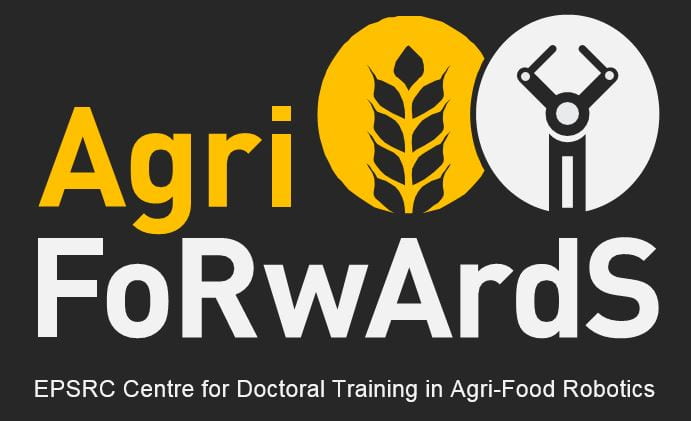AgriFoRwArdS CDT students, the L-CAS, LIAT and LAR research groups, as well as students from the University of Lincoln MSc RAS programme, came together to take part in this years Robot Lab Live 2022. Robot Lab Live is a virtual showcase of cutting-edge robotics technology, and the flagship event of the UK Festival of Robotics.
When did the event take place?
The Robot Lab Live is an event that celebrates UK robotics and this year took place on the 22nd June between 16:00 -18:00. The live demonstrations were presented from locations across the UK ranging from fruit farms to inside aquariums!
How many research groups were involved?
This year the event showcased 12 of the UK’s top robotics research groups with each team showing off their cutting-edge robots and autonomous systems simultaneously to a live audience on YouTube. Each demonstration was run during a two-hour livestream, where questions could be asked, demonstrators could be interacted with and research teams quizzed on the work that they do.
Over 1600 people tuned in live to watch the events with the Agri-Food Robotics live lab proving one of the most popular!
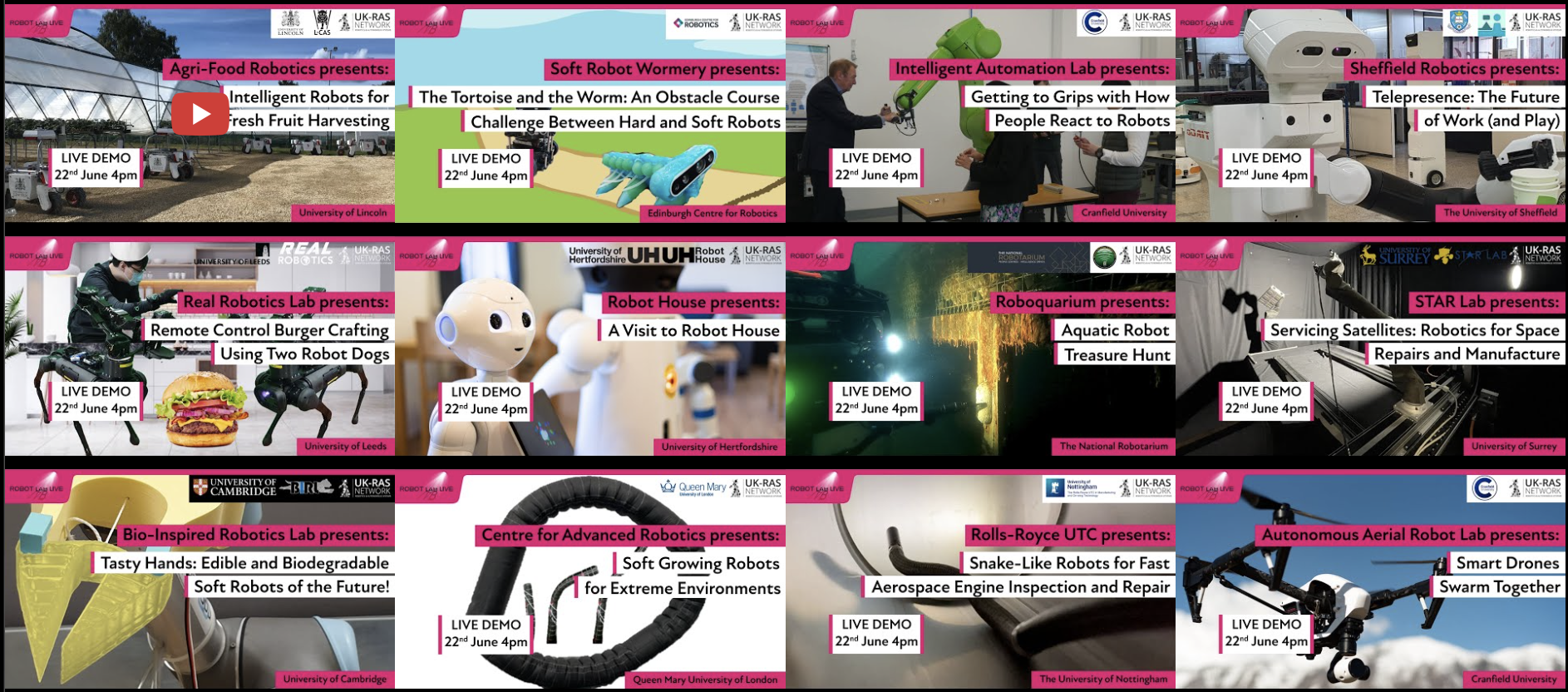
What did Agri-Food Robotics demonstrate?
The University of Lincoln specialises in robotics and autonomous systems in the agri-tech domain. This research is carried out across three core groups, Lincoln Autonomous Robotics (LAR), Lincoln Institute for Autonomous Systems (LIAT) and Lincoln Centre for Autonomous Systems (L-CAS).
To show the great work taking place we decided upon a holistic ‘Agri-Food Robotics’ demonstration, and the team chose to present two broad research segments – physical support and cognitive support. Cohort 1 CDT student, Roopika Ravikanna led segment one and Katherine James and Nikolaus Wanger from L-CAS, presented segment two.
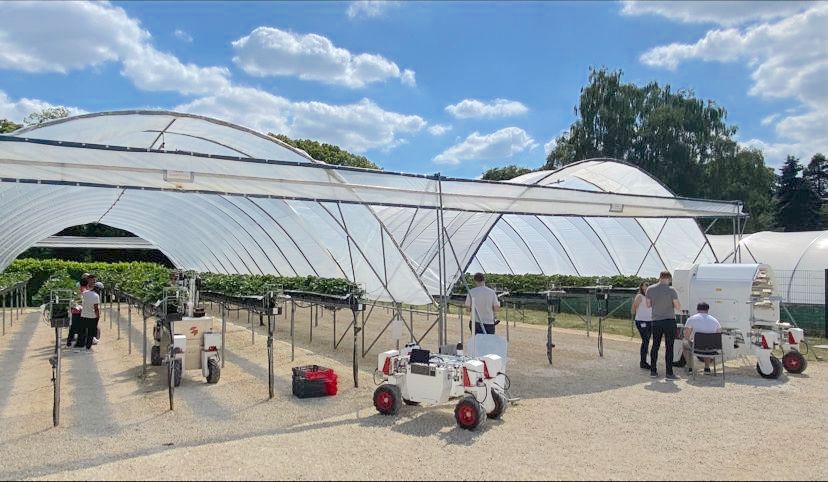
Segment One:
Segment one focused on the harvesting of fruit crops, which is physically and mentally demanding. Robots here can assist pickers to make crop production more sustainable by helping with physical tasks such as transporting picked crop to local storage facilities. With humans at the centre, the demonstration showed how fleets of robots can autonomously help multiple fruit pickers all working in parallel within an infield environment.
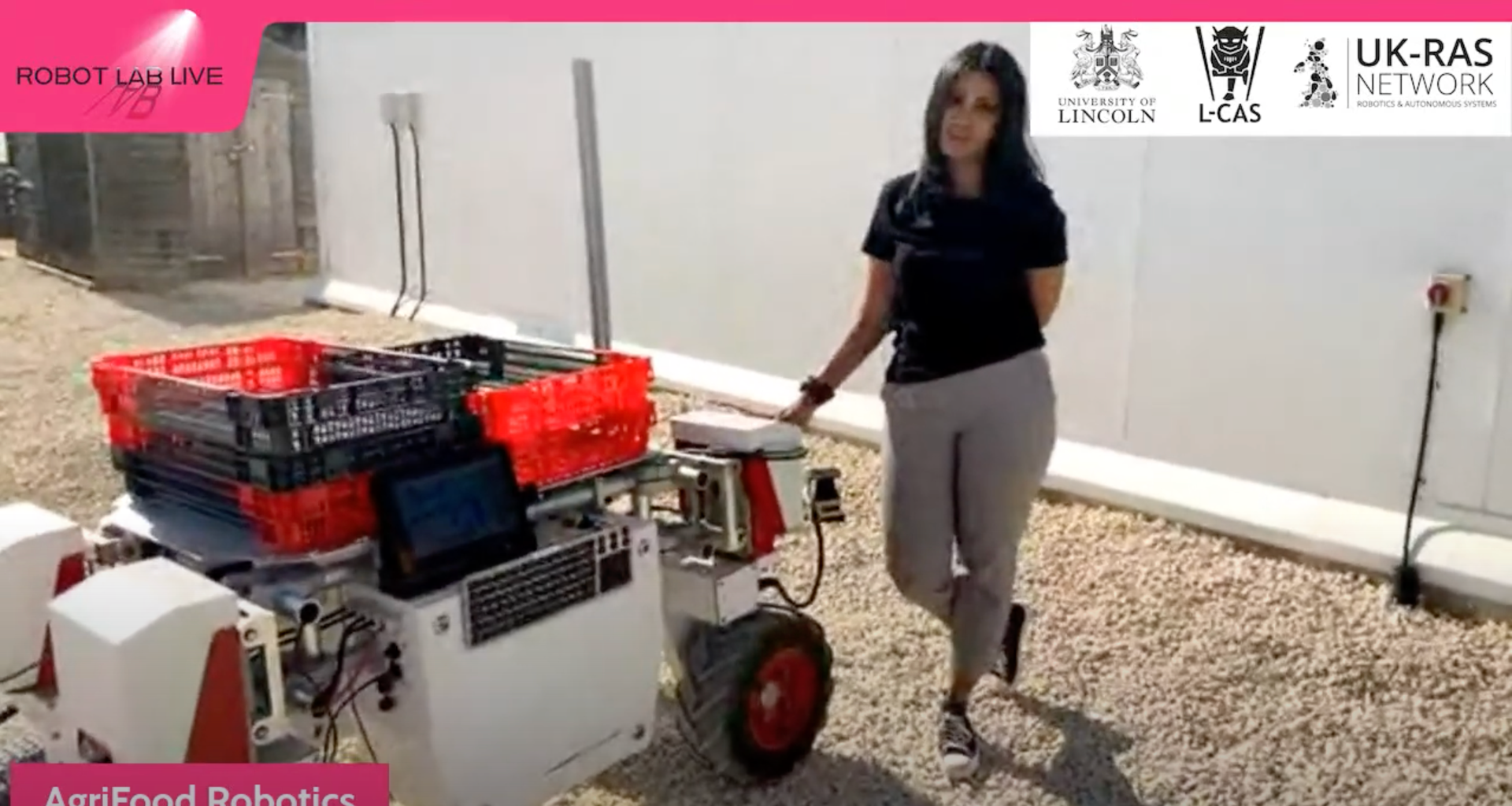
Segment Two:
Segment two focused on intelligent robots and how they can also help with decision making by automated and frequent monitoring of crop status (e.g., its maturity). This information aids agronomists in prescribing specific crop treatment or in forecasting future yield leading to more optimal and sustainable crop production.

Who was involved in live demo?
The team was full of amazing people from L-CAS, to the MSc RAS, to the AgriFoRwArdS CDT cohorts.
These were:
- Rufus S Alfred Cecil Raj (MSc RAS student)
- Suryashankar Bhat Balaganapathi Bhat (MSc RAS student)
- Stephen Rerri-Bekibele (MSc RAS student)
- Garry Clawson (AgriFoRwArdS CDT Cohort 3)
- James Heselden (LIAT), Katherine James (L-CAS)
- Nikolaus Wagner (L-CAS)
- Roopika Ravikanna (AgriFoRwArdS CDT Cohort 1).
Additionally, two further AgriFoRwArdS CDT cohort 3 students, Bethan Moncur and Nikolaus Tsagkopoulos, as well as Co-Investigator of the AgriFoRwArdS CDT, Dr Grzegorz Cielniak, took part in a live dress rehearsal at the end of May.
A huge thank you to all those that took part and made the live lab demonstration the success that it was!
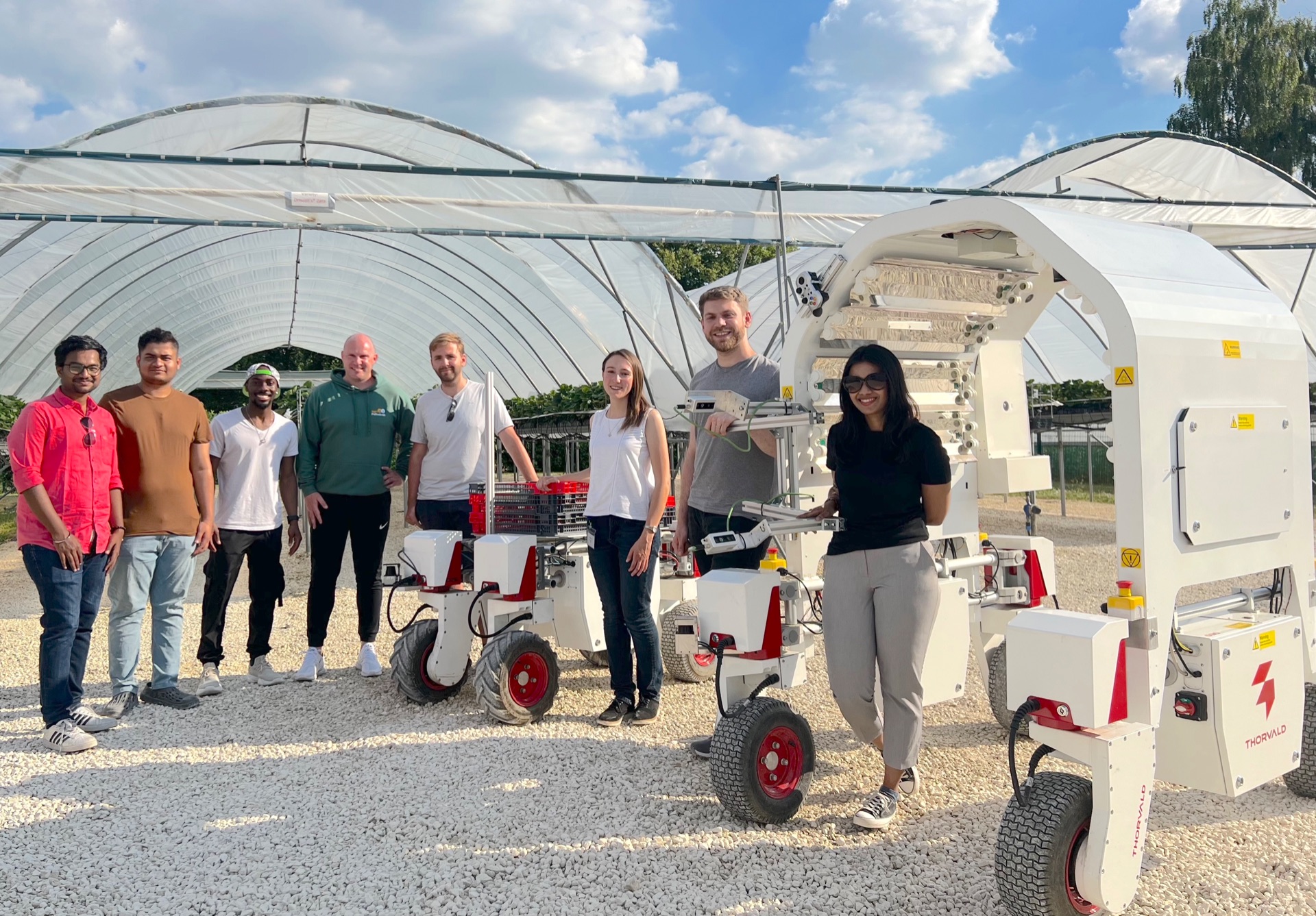
Did you have any funny bloopers?
Having a great team meant that the actual demonstration went very well. However, we had one small hiccup at the very beginning that meant the first demonstration at 16:00 was not sent to YouTube! Roopika quickly spotted this and the team rapidly regrouped and immediately completed another live demo. Everything went well from then on!
Where can I watch these videos?
The Agri-Food Robotics team live video can be found on the UK-RAS Robot Lab Live website or on the dedicated Robot Lab Live YouTube channel.
Want to be involved?
If you are interested in learning more about what we do and if you share a passion for agriculture and technology then go to our AgriFoRwArdS CDT website to see more about our research, how you can be involved and how to apply to be a student in the program.
